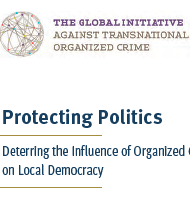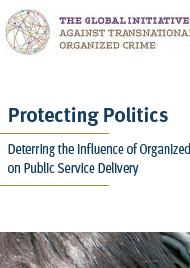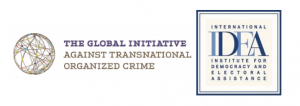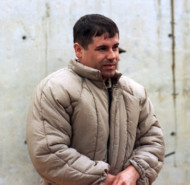Posted on 13 Sep 2016
The Global Initiative jointly with the International Institute for the Democracy and Electoral Assistance (the International IDEA) published two reports, titled “Protecting Politics: Deterring the Influence of Organized Crime on Public Service Delivery” and “Protecting Politics: Deterring the Influence of Organized Crime on Local Democracy” as part of a series of reports looking at organised crime and democracy. Both reports add insights through analysing case studies ranging from Afghanistan and Niger to Colombia.
Democracy has its heart at the local level with most citizens’ direct experience of political participation and deliberation mainly takes place in the context of city councils, associations and local branches of political parties. The presence of organised crime works as a catalyst for political corruption, hollowing out institutions at all levels of government and eroding the relationship between a citizen and his representative. The goals of, and relationships between, organised crime and politicians may overlap in several ways—for example, through mayors involved in money laundering, community police turning a blind eye to trafficking corridors or local political parties supporting candidates with criminal linkages.
While such illicit networks may also affect national level politics factors—including lower levels of media attention, tighter economic interests, fewer oversight mechanisms and local authorities’ reduced capacity—local democracy is particularly vulnerable to the interests of organised crime. This vulnerability makes it imperative to understand local democratic weaknesses these networks exploit in order to mitigate the harm caused by crime and corruption. By analysing the evidence and policy related to the nexus of organised crime and democracy, this project has shed light on these networks’ capacity to exploit institutional fragility around the world.
Improving institutional fragility has positive externalities beyond improving democracy.
As governments are responsible for the delivery of public services, corruption in government in turn fuels corruption and the misuse of public service provision. This leads to less accountable as well as less effective public services that are not adequately reaching those they are intended to serve. In some particularly fragile and conflict affected states, corrupt practices can be associated with organised crime groups which increasingly form parallel structures that compete with the state to provide services, in conflict with the state. In other cases, however, organised criminal networks do not become a service provider but instead hinders the state’s provision of services by leeching off state resources through corruption in public contracts.
In all cases, organised crime perpetuates poverty and inequality, while threatening economic growth and, by extension, democracy itself, through raising a government’s costs of provision and worsening the quality of public services provided. Organised crime challenges the state’s legitimacy by profiling itself as a viable provider of services to the population, while the state’s capacity to provide services is undermined. Citizens are consequently left with hollow democratic state institutions that are not capable of delivering better lives for them.
Growing discontent with corruption and crime in politics, as reflected in a number of public perceptions surveys and massive protests around the world, are important wakeup calls to implement serious strategies to prevent and mitigate political corruption linked to organized crime.
Together these reports explore:
- how organised crime becomes an engine for political corruption at the local level,
- how organised crime have become viable service providers,
- how organised crime gained legitimacy from the state, and,
- present an overview of democratic systems’ capacity to deal with the complex security threat organized crime presents and recommendations to improve this capacity.






